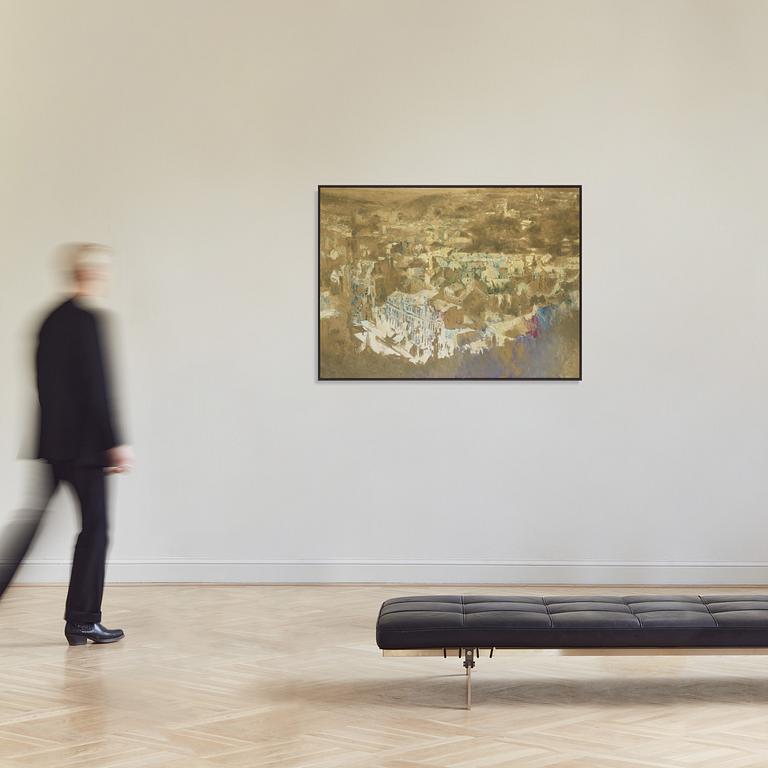Ola Billgren
"Townscape, SPA"
Signed Ola Billgren and dated 1988. Canvas 122 x 167.5 cm.
Alkuperä - Provenienssi
Karl-Erik Johanssons Collection, Sweden.
Bukowski Auktioner, auktion 626, Contemporary Art + Design, 10 November 2020, lot 22.
Kirjallisuus
Karl-Erik Johansson, "Samla sitt liv, Konstälskarens bilderbok", 2010, illustrated fullpage p. 59.
Muut tiedot
Monica Nieckels writes this about Ola Billgren:
"Ola Billgren, 1940-2001 was, during his years as a painter, the artist who first and most notably formulated the relationship between art as language and reality. He has been referred to as a theorist and a sensualist, and he was able to capture the historical and contemporary upon one singluar canvas.
After the era of experimental period of photorealism between the 60s and 70s, Billgren became overwhelmed by large scale compositions and impressionistic colour schemes of romanitc painting in the 1980s.
According to his titles, there hides city landscapes beneath his colours. We see the city as abstraction or dream, only sensed through the feeling and atmosphere that have lingered. The perspective is distant and slightly from above, as seen from an airplane descending that has just emerged from a cloud.
A painting that, like music, evokes a specific feeling during a given time and allows the viewer/listener to project their own images, passions, and dreams. The city and landscape become increasingly clear and intense for the observer as the process progresses over time. The eye's limited field of vision prevents the gaze from penetrating through the color as the feeling can. Through the language of art, other pathways into the painting and the image are opened that sight alone cannot achieve. The white city entices us behind its veils."
The late 1980s was an important period in the artist's development, where he continued to deepen his work with painting, combining abstraction and realism in a unique way. As Nieckels writes, his painting transitioned from the photorealistic style of the 1960s and 70s to a more romantically influenced painting style in the 1980s. He created atmospheric and dreamlike cityscapes, where some parts of the landscapes were sharp and detailed, while others dissolved into color and light. Many of his works from the 1980s demonstrated a fascination with the poetic and enigmatic nature of urban environments, where silence and stillness became prominent features.
An example of this style is "Townscape, SPA," which clearly shows his characteristic blend of photorealism and abstraction. These works often evoked a sense of distance, conveying both nostalgia and contemporaneity.












































